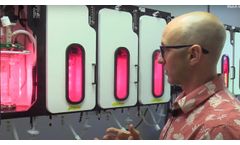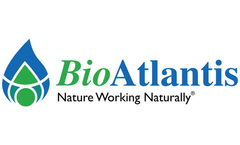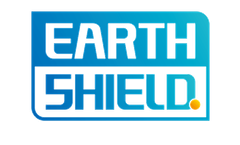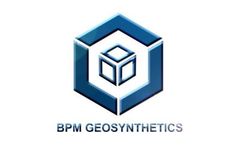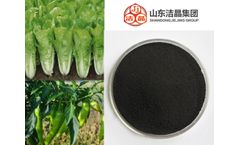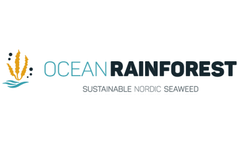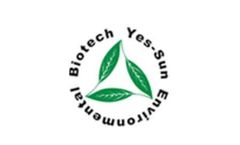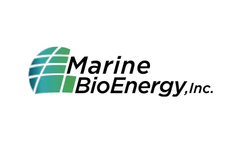Refine by
Seaweed Articles & Analysis: Older
37 articles found
Aquaponics Systems: Constructing closed-loop systems that integrate fish farming with hydroponic plant cultivation, where fish waste is used as fertilizer for the plants. Seaweed Farms: Establishing seaweed cultivation areas, typically on ropes or lines, to grow different types of seaweed for various applications like food, biofuels, or ...
‘Kelp’ Us Learn: Seaweed Reproduction and Hatcheries Credit for this content and appreciation for allowing us to repost goes to the Maine Aquaculture Innovation Center. This video is a part of their seaweed education curriculum for Maine students. Learn more about their program here. Also special thanks to The University Of Maine’s Aquaculture ...
Summary In 2003 Tralee-based biotechnology company, BioAtlantis began collaborating with UCD researchers to develop a seaweed-based product to promote better animal health. A key driver in the partnership was the ruling from Europe in 2006 that banned the use of in-feed growth promoting antibiotics. ...
Most natural thickeners are produced from plants and seaweeds containing polysaccharide viscous substances, such as starch, pectin, agar, gelatin, seaweed fat, carrageenan, dextrin, tragacanth gum, and polysaccharide derivatives. ...
In 2012, Indonesia’s fishery production reached approximately 8.9 million tonnes, of which inland and marine catch accounted for about 5.8 million tonnes and aquaculture 3.1 million tonnes in addition to 6.5 million tonnes of seaweeds. About 95 percent of fishery production comes from artisanal fishermen. ...
Domestic demand and export potential together bring business opportunities to fish, shellfish and seaweed producers, processing enterprises and equipment and logistics suppliers operating abroad.Shrimp is the main fishery export commodity of Indonesia, and it is very suitable for artificial breeding production. ...
The abundant marine biological resources are a material treasure house for the development of ecological agriculture. Seaweed extracts is one of the algae products from marine biological resources. It refers to seaweed extract powder/flakes, alginate oligosaccharide, seaweed extract liquid. ...
Seaweed in cattle feed to reduce greenhouse gas from burping dairy cows Seaweed could contribute to reducing greenhouse gas emissions from agriculture. The research project Climate Feed will develop seaweed feed supplement with funding from Innovation Fund Denmark. There’s a huge potential in reducing cows’ emission of methane and, ...
A feasibility study on Blue Fashion using cultivated seaweed for textile production The goal is to study the feasibility of “Blue Fashion” using seaweed cultivated and harvested in the North Atlantic and process it into seaweed fibres, that can be used in knitted and woven fabric. The study will focus on four specific objectives: ...
In Far East, longlines of seaweed – also known as macroalgae – is a common sight at the surface of the sea, however, seaweed cultivation is still at a modest level in Denmark and in Europe.. The MAB4 project which is financed by “Innovation Fund Denmark” aims at cultivating seaweed – in particular brown ...
The overall aim is to characterize and reduce the iodine content of seaweed products, by technology development for the products to comply with the legislation and therefore increase the product portfolio of seaweed producers and facilitate their market entrance. ...
Department of Energy, an international research team under the project name of MacroSystems, primed by Ocean Rainforest, Inc., has been asked to demonstrate the economic and social opportunities of offshore cultivation of seaweeds, specifically a species named Macrocystis pyrifera, aka Giant Kelp, in the U.S. Launched in 2018, MacroSystems represents an international ...
A widely available but underutilised Nordic bio-resource is macroalgae (seaweed). Traditionally, macroalgae have been used for many years in the feed and food industry as binders (hydrocolloids extracts) and macroalgae can also be used as partial replacement in food and feed products, as proteins, oils, vitamin & mineral mixes, antibiotics, antioxidants, and colorants. ...
There is an increasing demand for new sustainable marine sources for products within food, feed, cosmetic, pharmaceutical and the energy sector. The European seaweed – or macroalgae - industry relies on wild harvest and growth is limited by ecological sustainability considerations. ...
This is a production platform that covers the whole technological chain for processing sustainable cultivated macroalgae biomass – also known as seaweed – to highly processed value added ...
Organic material from leftover food and grass clippings to organic DIY fertilizers made from plant or animal remainsPlant-based fertilizers: Compost Cottonseed meal Soybean Kelp Seaweed Wood ash uses like these Alfalfa meal fertilizer Animal-based fertilizers: Fish emulsion Fish meal Blood meal Animal manure Bat guano Worm castings Bone meal fertilizer ...
Nitrogen-rich materials include kitchen scraps, fresh pruning’s from your garden, alfalfa hay, grass clippings and seaweed. Keep it moist Water is another key component in making compost, but you don’t need too much. ...
One day in the future, the Pacific Ocean could be home to kilometers of seaweed farms tended by submarine drones and waiting to be turned into fuel. ...
But deep below the ocean, there is a source of clean carbon energy waiting to be harvested, which will go a long way to reducing our dependence on oil, gas and coal – seaweed. A recent study in Nature Geoscience estimated that seaweed floating down to the depths of the ocean naturally sequesters 173 million tons of carbon a year, about as much as New ...
“We are continually looking at new opportunities in the aquaculture sector and exciting times lie ahead with the growth and development of land based farm units, the use of cleaner fish, and the development of new culture systems for seaweed and shellfish.” ...


